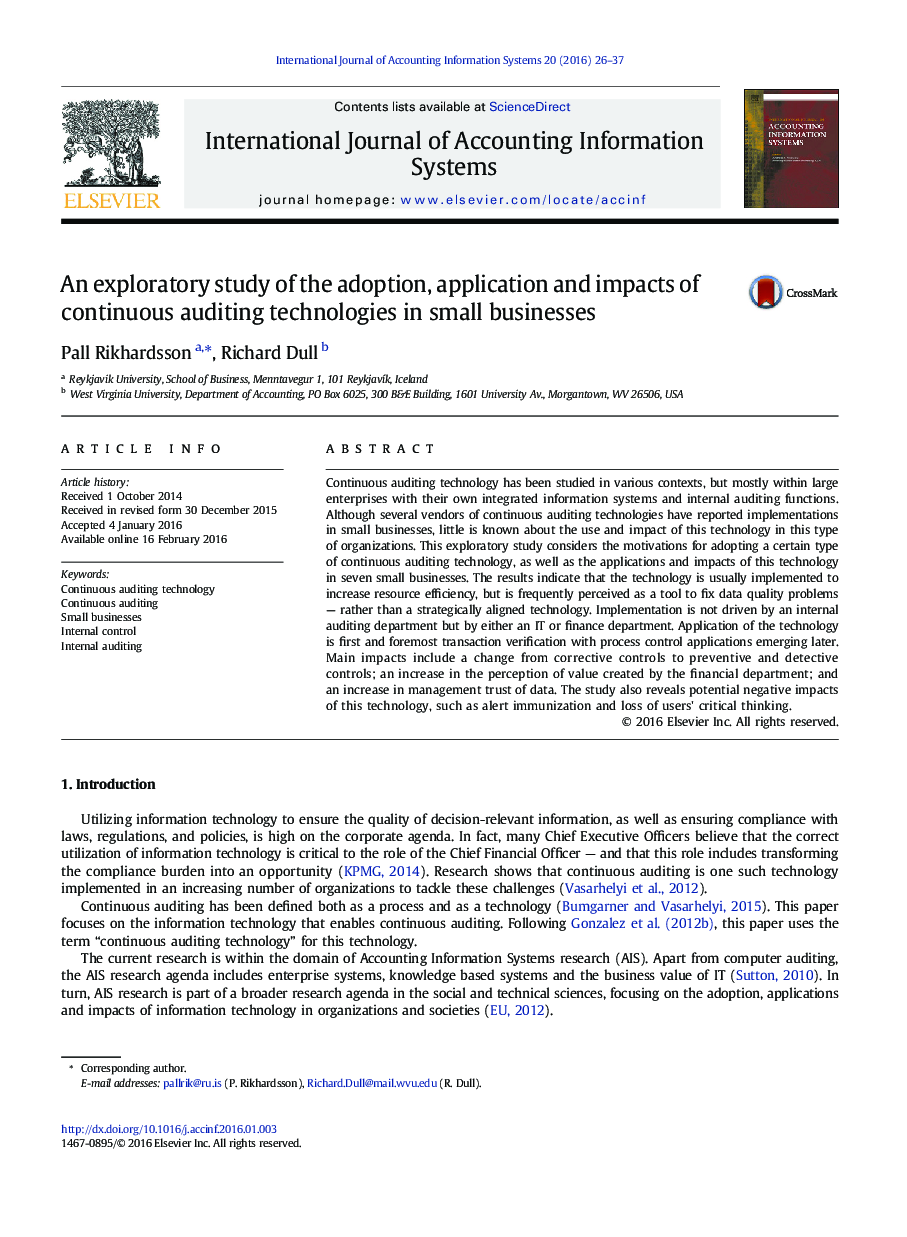| کد مقاله | کد نشریه | سال انتشار | مقاله انگلیسی | نسخه تمام متن |
|---|---|---|---|---|
| 1005325 | 1482001 | 2016 | 12 صفحه PDF | دانلود رایگان |
• Adoption, application and impact of continuous auditing technology differs between small and large enterprises
• Small businesses are more opportunistic than larger companies in acquiring and implementing continuous auditing technology
• Continuous auditing technology adoption in the small businesses studied is driven by a need to improve management reporting
• Continuous auditing technology improves decision-making, creates business value and changes finance department roles
Continuous auditing technology has been studied in various contexts, but mostly within large enterprises with their own integrated information systems and internal auditing functions. Although several vendors of continuous auditing technologies have reported implementations in small businesses, little is known about the use and impact of this technology in this type of organizations. This exploratory study considers the motivations for adopting a certain type of continuous auditing technology, as well as the applications and impacts of this technology in seven small businesses. The results indicate that the technology is usually implemented to increase resource efficiency, but is frequently perceived as a tool to fix data quality problems — rather than a strategically aligned technology. Implementation is not driven by an internal auditing department but by either an IT or finance department. Application of the technology is first and foremost transaction verification with process control applications emerging later. Main impacts include a change from corrective controls to preventive and detective controls; an increase in the perception of value created by the financial department; and an increase in management trust of data. The study also reveals potential negative impacts of this technology, such as alert immunization and loss of users' critical thinking.
Journal: International Journal of Accounting Information Systems - Volume 20, April 2016, Pages 26–37
